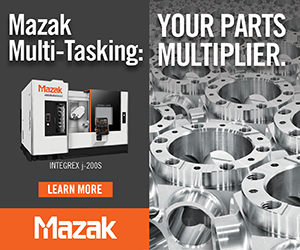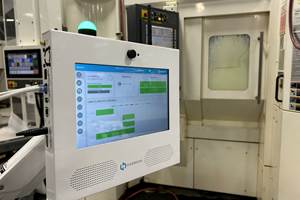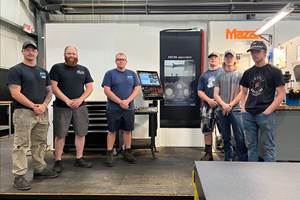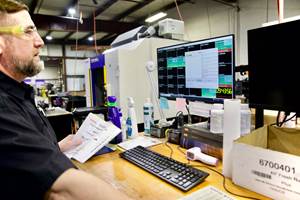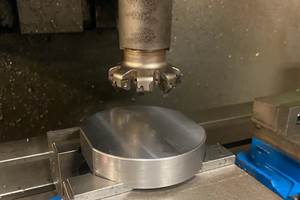How One College Meets the Need for Trained Manufacturing Hands
One obstacle to training the next generation of machine operators and engineers is exposing them to the variety of machine types and controls they are likely to encounter when they are hired. A community college in Illinois has the answer—training machines from Emco Maier with exchangeable control panels.
Where is the next generation of machine operators and engineers coming from? Places like Richland Community College in Decatur, Illinois. Over the last 20-plus years it has invested in more than a dozen Emco Maier CNC turning and milling training machine tools and is a key training partner for Caterpillar, Archer Daniels Midland and other production and manufacturers in its area.
“Unlike many institutions throughout the USA, that gear their training off of a certification program, which is not always accepted by industry, Richland has developed a training system that prepares students to be more engineers than button pushers,” points out Zak Lyon, Emco Maier engineer. “Once they finish the very well-constructed program, the students can do a little bit of everything from reading prints, setting up machines, troubleshooting, inspecting parts and writing programs.” Mr. Lyon worked with Richland to specify the latest trainer machine tools for the college.
The Richland program originally started in the 1990s at the request of Caterpillar, which wanted to ensure a source of skilled manufacturing technology operators. The college program grew from that point.
Today, the program offers students a two-year Associate in Applied Science degree in Engineering Technology with a concentration in CNC technology. It is a very popular program for students, male and female alike. The students know that manufacturers in the area, as well as in other states, are looking for trained hands for their shops who can design, program, and operate safely and efficiently the advanced machine tools and automation in which they are investing.
The college also offers certificates in certain skill areas, making the student more marketable. One such area is Drafting and Design, where students learn about the design process and how to use the latest 3D CAD software used in industry. Richland Community College also works in partnership with the Heartland Technical Academy providing dual-credit programs to their high school students.
The CNC lab, with its Emco Maier trainers, has helped to generate interest among these young students, as enrollment for the Fall 2015 semester is already at 20—up from four last semester.
The program includes instruction in part design, programming and metrology, along with technical course material such as mathematics and physics. Richland’s courses are project-based, providing the student with real-world work assignments. Students will spend the majority of their time in the lab applying their learning as they complete their work assignment. The result is that students have the confidence, background and understanding to be effective and not merely button pushers.
“With this well-rounded background,” says Jack Adwell, Dean of Business & Technology Division, “students can look at a project and program the machine to generate a finished, quality part.”
The college also offers training for operators already working in industry so they can acquire advanced skills—again, to keep up with the increasing sophistication of the newer machine tools.
Why Emco?
There are not many sources for full CNC trainer machines, yet training machines offer the best, safest and most economical way to train future machinists.
“We were never tempted to purchase cheaper quality machines for our college,” Mr. Adwell says. “We have chosen to invest only in reputable, reliable machines that provide a solid return on investment. Our 13 Emco’s are all still running well and Emco has updated the machines whenever necessary to keep up with developments in technology.” The college has multiple CNC turning and milling machines from entry-level to advanced level.
A key feature that Richland especially values is the exchangeable control panels available from Emco that enables students to learn to operate a machine through a FANUC or a Siemens CNC. “Once our students are out of school, they could be in a shop that runs either CNC system,” Mr Adwell says. “This feature enables our students to become proficient with both controllers and to be prepared to operate effectively in either environment.” Richland’s CNC lab also includes on-machine training with 10 offline computer stations using Emco control keyboards.
According to an Emco spokesman, Emco Industrial Training provides universally applicable training that can be tailored to individual requirements, and it allows the skills learned to be applied quickly to industrial CNC manufacturing. The idea of the interchangeable control, which Emco Industrial Training has integrated into all its Concept machines, has proved extremely effective in achieving this.
The control enables the user to be trained to use the different CNC controls commercially available in the industry on one single machine. People who have trained on Emco machines are then able to work on almost any CNC machine in a wide range of companies, removing the need for expensive and time-consuming CNC training.
All that is needed to change to a different control unit is to start up the appropriate software and change the control-unit-specific keyboard module, which takes just a minute. In this way, up to nine controls can be taught on one single machine from the Emco Concept range.
The college has invested in Emco Maier trainers because its range of trainer machines helps the students get from the basics to larger, more complicated multi-axis CNC machines. The college most recently invested in two Emco Maier ConceptMill 250s—one with a five-axis table. These will also be used for training operators from industry as their employer firms invest in five-axis machining technology.
The ConceptMill 250, like other Emco machines with interchangeable controls, offer as many as nine CNC controls on one machine, a 20-tool drum with double-gripper, all axes equipped with servo drive motors, an NC dividing unit as an optional fourth axis, and a rotating and swiveling table as fifth axis.
“The sophisticated, expensive machines now in shops need skilled, trained people that can be relied on to program, run and maintain them correctly and efficiently,” Mr. Adwell concludes.
Related Content
Can Connecting ERP to Machine Tool Monitoring Address the Workforce Challenge?
It can if RFID tags are added. Here is how this startup sees a local Internet of Things aiding CNC machine shops.
Read MoreTop Shop Builds Upon Employee Ownership for Future Success
In its quest to become the Fox Valley’s best-in-class employer, A to Z Machine has adopted an ESOP, expanded benefits and invested in apprenticeships.
Read MoreA Career at the Top Helps Rebuild a Job Shop
A new approach to management propels expansion into Swiss-type and multitasking machining work.
Read MoreAll-Around Mill Improves Productivity and Cost for Valve Job
Adopting a mill with a double-negative rake and pockets compatible with multiple insert geometries enabled Progressive Metal Service to increase feed and lower scrap rates for a valve.
Read MoreRead Next
The Cut Scene: The Finer Details of Large-Format Machining
Small details and features can have an outsized impact on large parts, such as Barbco’s collapsible utility drill head.
Read More3 Mistakes That Cause CNC Programs to Fail
Despite enhancements to manufacturing technology, there are still issues today that can cause programs to fail. These failures can cause lost time, scrapped parts, damaged machines and even injured operators.
Read More
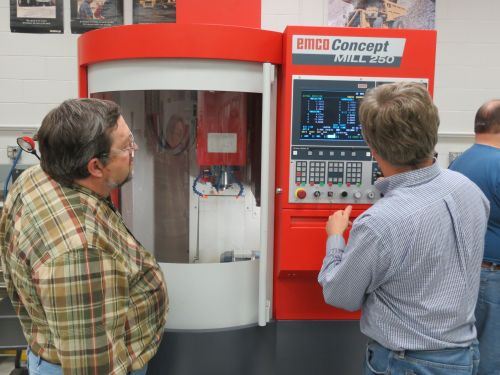
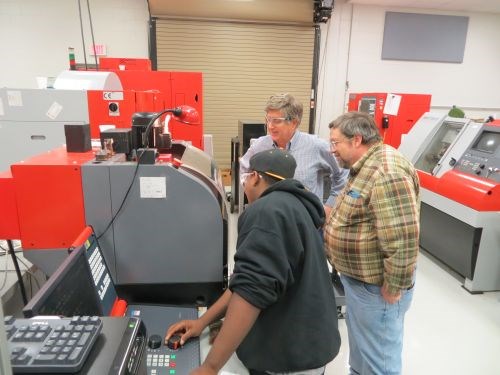




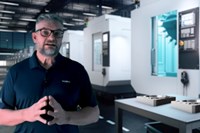
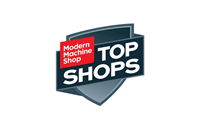




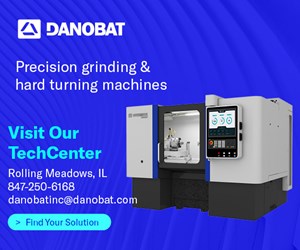


.png;maxWidth=300;quality=90)



